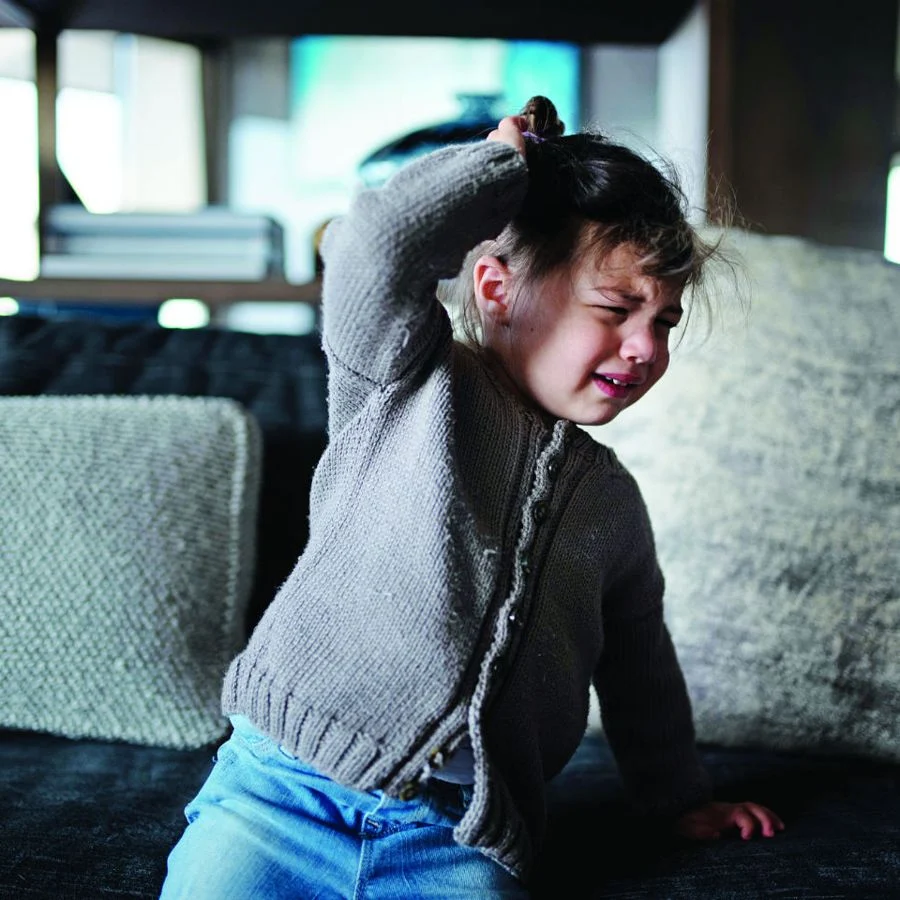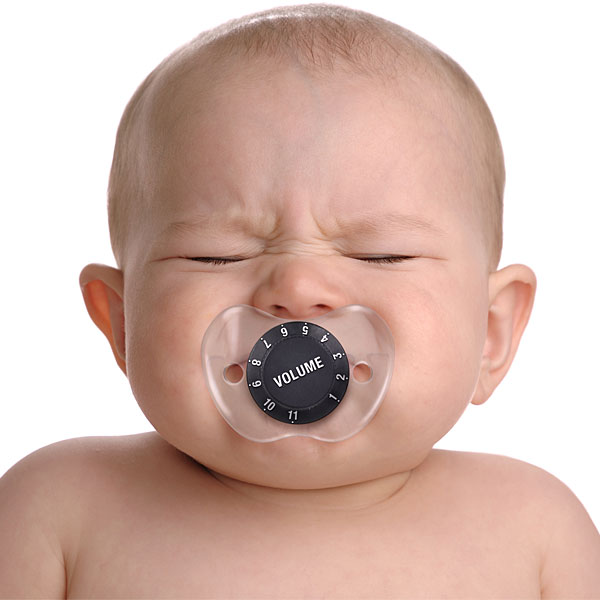Reasons Why Toddlers Hit Themselves
Toddler hitting himself when angry! When toddlers hit themselves, parents often worry. Understanding why can ease concerns and help manage behavior. Here are common reasons for this distressing action.

Frustration and Limited Communication Skills
Toddlers feel big feelings they can’t always put into words. Hitting themselves might be their way of saying, ‘I’m upset.’ It’s important we understand this as part of their growth.
Excitement and Energy Overflow
Sometimes, toddlers show their joy in odd ways. They may smack themselves because they don’t know how else to express their thrill.
Separation Anxiety and Routine Changes
Changes scare toddlers. They rely on familiar faces and routines. When apart from loved ones or faced with new schedules, they might hit themselves as a cry for help or comfort.
Attention-Seeking Behaviors
Toddlers learn fast that certain actions get quick reactions. They might hit themselves to make sure they’re noticed, especially if they feel neglected.
Pain Relief During Teething or Illness
Toddler hitting himself when angry! When in pain, like from teething, toddlers might strike themselves. It’s their way of dealing with discomfort or trying to distract themselves from it.

Managing and Preventing Self-Hitting in Toddlers
When your toddler hits themselves, it often stems from an inability to express complex emotions. As a caring parent, you can help manage and prevent this behavior with patience, observation, and appropriate interventions.
Identifying the Underlying Cause
To curb self-hitting, observe when and why it happens. Is your toddler hungry, tired, or overstimulated? Note these incidents to pinpoint triggers and address them effectively.
Providing Comfort and Safety
Create a safe space by removing sharp objects and ensuring soft surroundings. Offer hugs and a calming presence to soothe your toddler during overwhelming moments.
Talking and Offering Reassurance
Speak to your toddler with gentle words. Acknowledge their struggle and assure them of your love and support. This verbal reassurance can deter further self-hitting episodes.
Redirecting to Positive Activities
Engage your toddler in activities they enjoy, like drawing or playing with blocks. This redirection helps channel their energy and emotions into constructive actions.
Introducing Visual Aids for Emotion Expression
Use emotion charts and flashcards to help your toddler recognize and name their feelings. These tools can guide them to express emotions without self-harming behavior.
The Connection Between Self-Hitting and Autism
Toddler hitting himself when angry! When observing a toddler hit themselves, it’s natural for parents to wonder about autism. While self-hitting isn’t solely indicative of Autism Spectrum Disorder (ASD), it can be one of the signs when coupled with other behaviors.

Recognizing the Difference in Patterns
Autistic children often exhibit self-hitting as part of a repetitive or stimulatory behavior. Unlike their non-autistic peers, the patterns might seem more rhythmic or frequent without a clear trigger. It’s essential to observe not just the act of hitting but also the context and accompanying behaviors.
When to Seek Professional Diagnosis and Support
Proactive evaluation is key. If your toddler’s self-hitting is persistent, seems disconnected from emotions or situations, or is accompanied by other symptoms of ASD—like challenges with social interactions, communication hurdles, or restrictive interests—it’s time to consult a healthcare professional. An early diagnosis leads to early intervention, which can significantly improve outcomes for children with ASD. Seeking support from specialists in child development can provide valuable guidance and resources for both the child and the family.
When Self-Hitting Behaviors are a Concern
As a parent, it’s crucial to recognize when self-hitting in toddlers moves from a developmental phase to a concern. Here are signals that indicate when these behaviors warrant extra attention and action.
Persistent and Chronic Self-Injury
If a toddler’s self-hitting is not an isolated event but a regular pattern, it could suggest deeper issues. Persistent or chronic self-injury, especially if it results in visible harm, needs to be addressed immediately.
Observing and Reporting to Healthcare Providers
Keep track of self-hitting incidents, noting their frequency, intensity, and any possible triggers. Share these observations with healthcare providers, who can assess whether there’s an underlying condition that requires specialized care or intervention.
Safety Measures and Prevention
To prevent injuries, make the home environment safe. Cushion sharp corners, offer soft toys for biting, and ensure constant supervision. Reinforce positive behaviors and redirect negative ones by keeping your toddler engaged with activities that reduce stress and frustration.
Effective Response Strategies for Parents
Parenting a toddler who hits themselves can be stressful. But with the right strategies, you can help your child navigate their emotions and reduce self-hitting behaviors.
Staying Calm and Non-Judgmental
It’s crucial to remain composed when your toddler hits themselves. Respond with empathy and understand that this behavior is often a plea for help or a way to communicate frustrations.
Avoiding Punishment and Negative Attention
Toddler hitting himself when angry! Punishing your child for hitting themselves can exacerbate the issue. Instead, focus on positive reinforcement and acknowledge their rightful feelings without endorsing the action.
Helping Your Toddler Develop Coping Skills
Encourage your toddler to use words, draw, or use other non-harmful ways to express strong emotions. Offer alternatives like squeezing a stress ball or cuddling a favorite toy when they’re upset.
The Importance of Parental Self-Care
Caring for a toddler is demanding; take time for self-care. Your well-being is vital in maintaining the patience and clarity needed to support your child effectively.
Frequently Asked Questions About Toddler Self-Hitting
As parents navigate the challenging phase of toddler self-hitting, several common questions arise. Understanding these aspects can offer peace of mind and effective strategies for managing this behavior.
Duration of the Hitting Phase
Many parents wonder, ‘How long will my toddler hit themselves?’ Typically, this behavior begins around 18 months and can last until they’re better at expressing themselves, usually by age four. However, each child is unique, and some may move past this phase faster than others.
Commonality of the Behavior
Is self-hitting a universal toddler experience? While not all toddlers will display self-hitting behaviors, it’s a relatively common way for young children to express frustration or gain attention. The important thing is to respond with understanding and guidance.
What Not to Do When Your Toddler Hits
When your toddler engages in self-hitting, avoid yelling or harsh discipline as these can intensify their distress. Don’t dismiss their feelings or force them to stop abruptly. Instead, focus on calming techniques, seeking underlying causes, and teaching alternative expressions.
Parents can find reassurance in knowing that toddler self-hitting is often a phase that improves with development and tailored support.
Additional Resources and Support
Navigating the journey of parenting a toddler who hits themselves can feel isolating at times. However, numerous resources and support systems are available to assist families in addressing and managing self-hitting behaviors. This section highlights avenues for professional assistance, educational materials, and community-based support that can make a significant difference in coping with this challenging behavior.
Seeking Professional Help
When behaviors persist or escalate, it may be time to seek professional help. Child psychologists, pediatricians, and child development specialists can provide insights into your toddler’s behavior, suggest practical intervention strategies, and offer ongoing support. Early intervention can play a critical role in preventing the escalation of self-hitting into a more severe or habitual issue.
Educational Tools and Techniques
Educational tools like books, videos, and online courses tailored for toddlers and their parents can offer guidance on emotional regulation and communication. Techniques like role-playing, storytelling, and interactive games can be used to teach toddlers healthier ways to express their emotions and deal with frustrations.
Community Support for Parents
Connect with other parents facing similar challenges through parenting forums, support groups, or social media platforms. Sharing experiences and strategies can provide comfort and practical advice. Remember, you’re not alone in this; tapping into a community can bring shared wisdom and collective strength to navigate the sometimes tumultuous toddler years.



